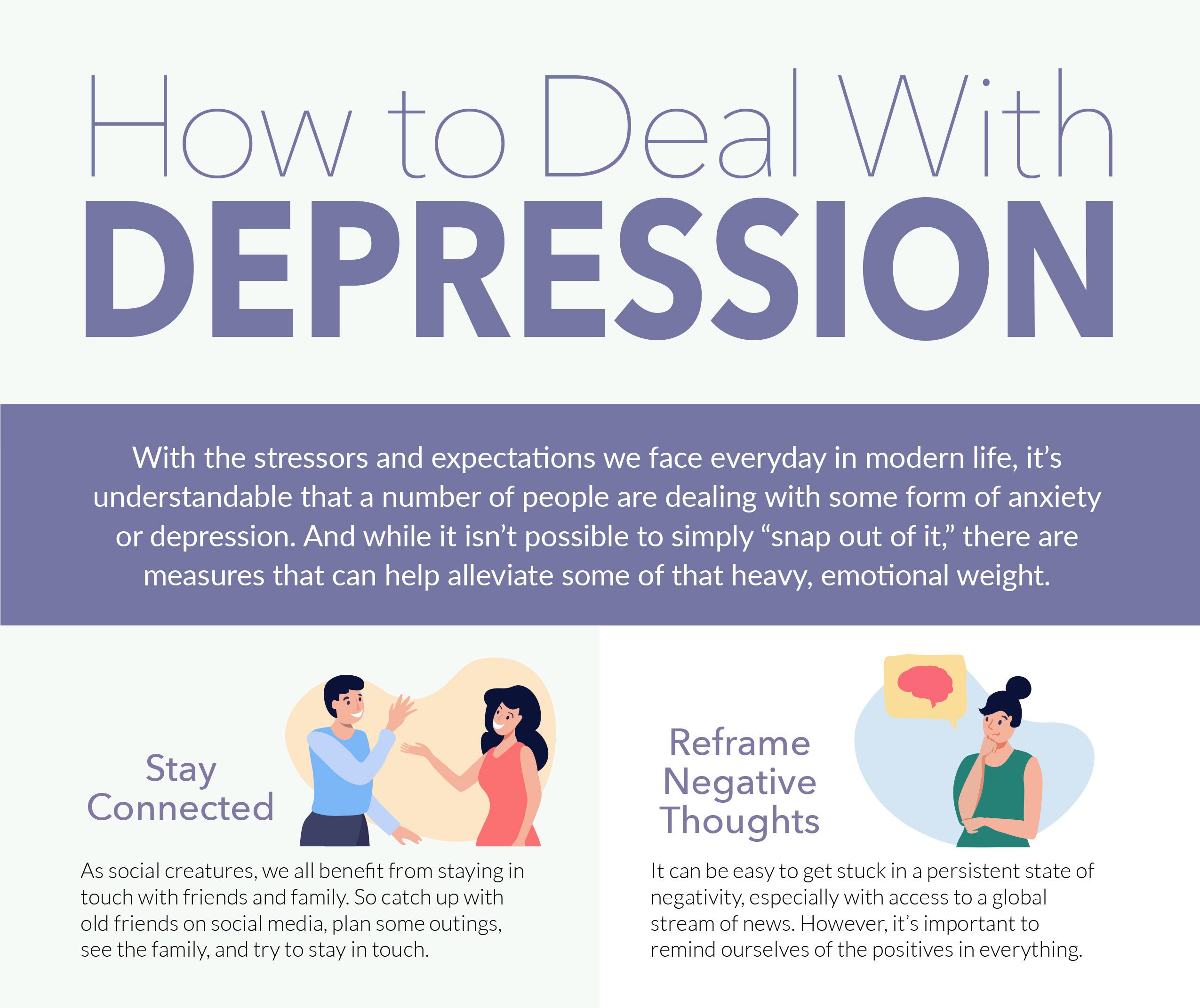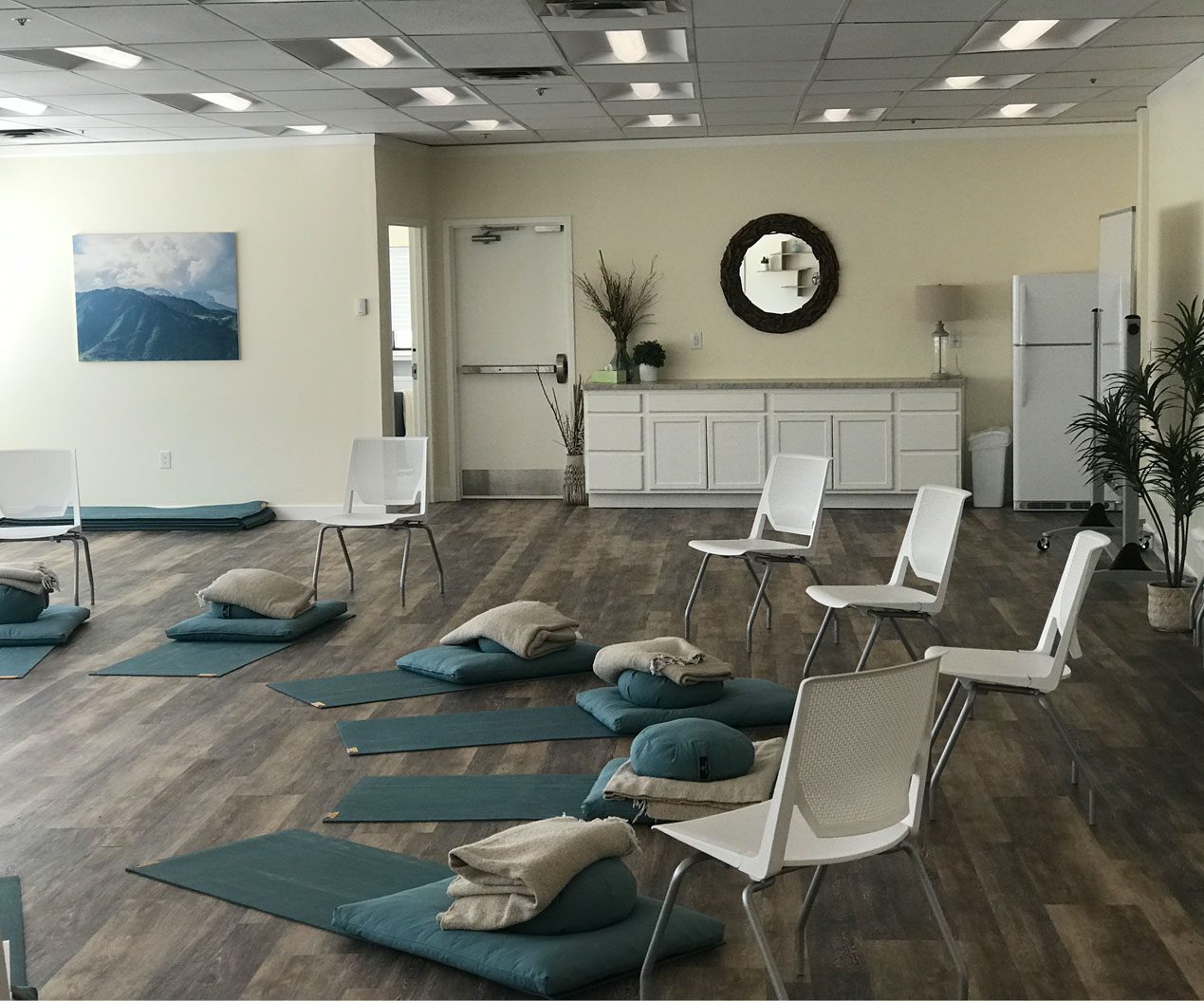The novel coronavirus has changed our daily lives in some striking ways. Likely, few in the world can say they’ve been spared from the impact of this virus. Many have lost jobs, some have, tragically, lost loved ones to the illness and even more are feeling symptoms of depression for the first time.
Uncertainty about the course of the pandemic and its reach isn’t the only thing that can corrode mental health. Many may live in fear of catching the virus, or loved ones becoming infected. Living amid the pandemic can cause persistent thoughts about mortality. And the public health steps put in place to slow the spread of this invisible enemy, including canceling public events, social distancing and living in quarantine, can be a driver of depression.

The National Institute of Mental Health defines depression as a serious mood disorder which causes severe symptoms that affect how you feel, think and handle daily activities. From sleeping to working, depression can alter every aspect of our lives.
According to recent Census Bureau data, a third of Americans are showing signs of clinical anxiety or depression. While those with depression can’t simply “snap out of it,” there are some measures that can alleviate some of depression’s heavy, emotional weight.
Stay Connected
Time alone can be beneficial to your mental health. But too much isolation—as many have experienced during the pandemic—can lead to increased feelings of sadness and, ultimately, depression. After all, we’re inherently social creatures. Choose to be thankful for the technology that’s allowed us to see our loved ones even during these unprecedented times of social distancing. Share a dinner with family via video conference or catch up with old friends on social media. Use the technology literally at your fingertips to stay connected if you’re feeling lonely, sad or depressed.

Reframe Negative Thoughts
It can be easy to get stuck in a persistent state of negativity. Reframing your thoughts about the pandemic can help expose the positive—as it’s always there! If you’re tired of being isolated, just think about the extra time you have. You can start that novel you’ve always dreamed about or pick up a new hobby. And, while it may feel never-ending, remember that our current predicament is temporary. When this temporary crisis comes to an end, think about the warm reunion with friends, family and, for those who lost their jobs, even work. Plus, this experience can help provide resilience to face future challenges.
Stay Productive
Whether you’re working from home, or you’re one of the millions out of work, or an essential worker bravely facing each workday, start every day by making your bed. No, this isn’t a euphemism. Really, make your bed. As Charles Duhigg wrote in his book, The Power of Habit, “making your bed every morning is correlated with better productivity, a greater sense of well-being and stronger skills at sticking to a budget.” Essentially, starting the day off by completing one task will lead to another, then another and so on. The point is to focus on productivity to add structure to your day. Unstructured time can lead to rumination and passivity—both risk factors for depression.
Listen to Music
Listening to music is, of course, entertaining. But research suggests that it may have real benefits for your mental health. One study found music therapy was a safe, low-risk way to reduce depression and anxiety—although the type of music was a factor. Classic and meditation music offered the greatest benefits. Modern music therapy was developed after World War II to help soldiers with post-traumatic stress disorder (PTSD). After noticing positive physical and emotional responses to music, nurses and doctors began to hire musicians to help treat patients with PTSD. Just ensure the music you’re listening to is relaxing. Heavy metal and techno music have been found to be ineffective and, even, detrimental to mental wellness.

Limit Exposure to News
Take a break from the news. The continual stream of stories about the pandemic and the sometimes contradictory information can overwhelm and frustrate anyone. So, put down your phone, turn off the TV or stay off the computer. Pick one time per day to check the news—and make sure it isn’t right before bedtime.
. . . and Rely on Trusted Sources of Information
When the designated time arrives to check the news, turn to trusted sources of information. Misinformation and rumors about COVID-19 can cause fear, uncertainty, stress and, ultimately, lead to feelings of depression. The Centers for Disease Control and Prevention (CDC) can be an impartial source of up-to-date information and reporting, just as one example. Social media, on the other hand, is a less reliable source of trustworthy information. According to a new Pew Research Center study, social media has only helped to propagate misinformation and disinformation. The study revealed that nearly two-thirds of Americans say they have seen news and information about the disease on social media that seemed completely made up.
Make Self-Care a Priority
Self-care means watching after your physical, emotional, mental and spiritual health. Aim to get 30 minutes of physical activity a day, three to five days per week—as it’s been shown to improve symptoms of depression. And practicing mindfulness can help improve both your emotional and mental health. Life can be busy, but make sure to take the time for self-care—especially during these trying times.
Seek Help
In some cases, these tips may not be enough to help you manage COVID-related depression. In that case, it may be best to seek professional counsel. It’s helpful to understand that seeking help is a sign of self-respect and strength, not weakness. Davis Behavioral Health is here with supportive, trained and experienced mental health professionals on staff to help you manage your depression or anxiety during these uncertain times. We offer comprehensive and compassionate care. And, if you or a loved one are displaying warning signs of suicide, please contact the National Suicide Prevention Lifeline at 1-800-273-8255 or Davis Behavioral Health’s own 24-hour crisis hotline at 801-797-3102.


